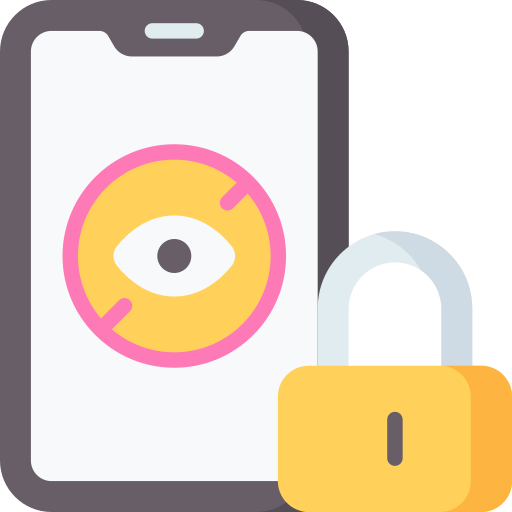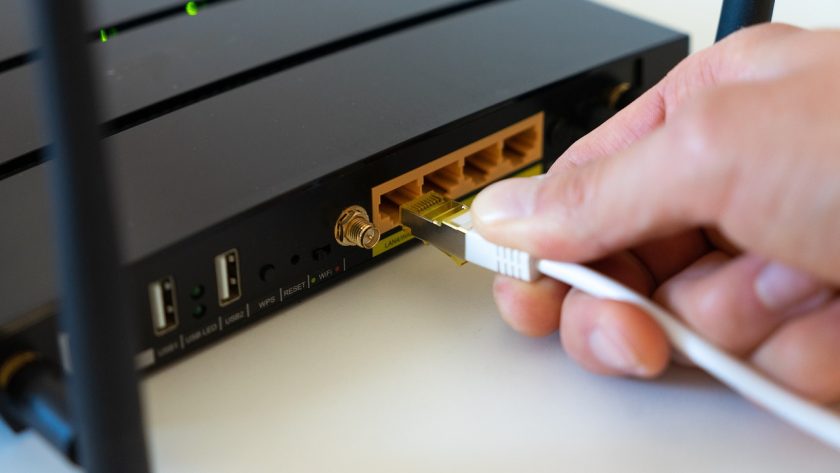Understanding the Importance of Online Friendships
Online friendships have become increasingly important in today’s digital age. With the advent of social media platforms and online communities, individuals now have the opportunity to connect with others from all around the world. These online friendships can provide a sense of belonging and support that may not always be readily available in offline relationships.
One key aspect of online friendships is the ability to find like-minded individuals who share similar interests or experiences. Whether it’s a hobby, a passion, or even a specific life circumstance, connecting with others who understand and relate to your situation can be incredibly valuable. Online friendships allow for meaningful connections that might not otherwise be possible in our immediate physical surroundings.
Additionally, online friendships offer opportunities for personal growth and learning. Through engaging with diverse perspectives and cultures, individuals can broaden their horizons and develop empathy towards others. These virtual connections can expose us to different ideas, beliefs, and ways of life that we may not encounter within our own communities.
Overall, understanding the importance of online friendships means recognizing their potential impact on our lives. They provide avenues for connection, support, personal growth, and cultural exchange that are unique to the digital realm. By embracing these relationships responsibly and fostering open communication about them with our loved ones – especially children – we can fully appreciate the positive aspects they bring while also being mindful of potential risks.
Recognizing the Risks and Benefits of Online Friendships
Online friendships can bring both risks and benefits to individuals of all ages. One of the main benefits is that online friendships provide a platform for people to connect with others who share similar interests or experiences, regardless of geographical boundaries. This can be especially valuable for individuals who may feel isolated or have difficulty forming relationships in their offline lives. Online friendships also offer a sense of anonymity, which can encourage open and honest communication.
However, it is important to recognize the potential risks associated with online friendships. The lack of face-to-face interaction makes it easier for individuals to misrepresent themselves or deceive others about their true intentions or identities. This puts vulnerable individuals at risk of falling victim to scams, cyberbullying, or even grooming by predators. Additionally, spending excessive time in online relationships may lead to social isolation and hinder the development of necessary interpersonal skills.
To navigate these risks and benefits effectively, it is crucial for parents and guardians to establish clear guidelines and boundaries regarding their child’s online interactions. Open communication plays a vital role in helping children understand the potential dangers they may encounter while fostering responsible digital behavior. By educating themselves about various social media platforms and online communities, parents can better monitor their child’s activities and ensure their safety.
By understanding both the positive aspects and potential pitfalls associated with online friendships, individuals are better equipped to make informed decisions about whom they interact with on the internet. Creating awareness around safe practices helps minimize risks while maximizing the benefits that come from connecting with others through technology.
Building Trust and Open Communication with Your Child
Building trust and open communication with your child is essential when it comes to navigating their online friendships. Establishing a foundation of trust allows your child to feel comfortable discussing their online interactions, concerns, and experiences with you. By fostering an environment of open communication, you can better understand their perspectives and offer guidance or support when needed.
Start by actively listening to your child without judgment or interruption. Let them know that they can come to you at any time if they have questions or need help regarding their online friendships. Encourage them to share both positive and negative experiences so that you can provide appropriate guidance based on the situation.
Additionally, be honest and transparent about your own knowledge and limitations in regards to technology. This will show your child that you are willing to learn alongside them and value their expertise in this digital age. By acknowledging that you may not have all the answers, it creates an opportunity for collaborative problem-solving between parent and child.
By building trust through open communication, parents can play a crucial role in guiding their children’s online friendship experiences. Remember that maintaining an ongoing dialogue is key; continue checking in regularly with your child about their online interactions as they grow older and encounter new challenges on various social media platforms or online communities.
Establishing Clear Boundaries and Guidelines for Online Friendships
Setting clear boundaries and guidelines for online friendships is crucial to ensure the safety and well-being of your child. Start by establishing rules regarding who they can connect with online. Encourage them to only accept friend requests from people they know in real life or have met through trusted offline activities, such as school or extracurricular clubs.
It’s important to discuss the importance of privacy and remind your child not to share personal information, such as their full name, address, phone number, or school name, with anyone they meet online. Emphasize that even seemingly harmless details can be used by strangers with malicious intent.
Additionally, establish guidelines for appropriate behavior and communication when interacting with friends online. Teach your child about digital etiquette and responsible online behavior. Remind them to always be respectful towards others and avoid engaging in cyberbullying or sharing inappropriate content.
By setting clear boundaries and guidelines for online friendships, you are helping your child navigate the digital world safely. Regularly communicate with them about their experiences online, encourage open discussions about any concerns they may have encountered while maintaining a supportive environment where they feel comfortable seeking guidance if needed.
Educating Yourself About Social Media Platforms and Online Communities
Social media platforms and online communities have become an integral part of our daily lives. As a parent, it is essential to educate yourself about these platforms to better understand your child’s online experiences. Familiarize yourself with popular social media apps such as Facebook, Instagram, Snapchat, and Twitter. Take the time to explore their features, privacy settings, and terms of use.
Understanding how these platforms work will enable you to have informed conversations with your child about responsible online behavior. Educate yourself on the potential risks associated with each platform and learn about the safety measures they offer. Stay updated on any changes or new features introduced by social media companies so that you can guide your child accordingly.
In addition to familiarizing yourself with specific social media platforms, it is crucial to gain knowledge about different online communities your child may be involved in. These communities can range from gaming forums to interest-based groups on platforms like Reddit or Discord. By understanding the dynamics of these communities, you can assess their appropriateness for your child and ensure they are engaging in positive interactions.
By educating yourself about social media platforms and online communities, you empower yourself as a parent to actively participate in guiding your child’s digital journey. Being knowledgeable allows you to address any concerns or issues that may arise more effectively while also fostering open communication between you and your child regarding their online experiences.
Recognizing Warning Signs of Unsafe Online Friendships
Paragraph 1: It is important for parents to be vigilant and aware of the warning signs that may indicate an unsafe online friendship. One red flag to watch out for is if your child becomes secretive about their online activities or starts using multiple accounts or aliases. This could suggest that they are trying to hide something or engage in inappropriate behavior with someone they met online.
Paragraph 2: Another warning sign is if your child suddenly becomes emotionally attached to someone they have only interacted with online. If they seem overly invested in this virtual relationship, it may be a cause for concern. Additionally, if your child starts receiving gifts or money from their online friend, this could be a manipulation tactic used by predators to gain control over vulnerable individuals.
Paragraph 3: Pay attention to any changes in your child’s behavior or mood as well. If they become withdrawn, anxious, or exhibit sudden shifts in personality after interacting with someone online, it could indicate an unhealthy dynamic. Trust your instincts as a parent and don’t hesitate to intervene if you suspect that your child’s online friendship has turned into something dangerous or exploitative.
Teaching Your Child about Digital Etiquette and Responsible Online Behavior
Teaching your child about digital etiquette and responsible online behavior is crucial in today’s digital age. It is important for children to understand the impact their words and actions can have on others in the online world. By instilling good digital etiquette habits early on, you are helping them navigate the online space with respect and kindness.
One key aspect of teaching digital etiquette is emphasizing the importance of being mindful of what they post or share online. Encourage your child to think before they click, reminding them that once something is posted, it can be difficult to remove or take back. Teach them about the potential consequences of sharing personal information or engaging in cyberbullying behaviors, stressing that their actions can have real-life implications.
Additionally, it is essential to educate your child about responsible online behavior by promoting positive engagement and respectful communication. Encourage them to use appropriate language and tone when interacting with others online, reminding them that behind every screen there are real people with feelings. Teach them how to express themselves constructively without resorting to insults or offensive language.
By teaching your child about digital etiquette and responsible online behavior, you are equipping them with valuable skills for navigating the digital world responsibly. These lessons will not only help protect their own well-being but also contribute towards creating a more positive and inclusive online community overall.
Encouraging Offline Interactions and Balancing Online Relationships
Encouraging offline interactions and finding a balance between online relationships is crucial for the overall well-being of your child. While online friendships can provide support, entertainment, and connection, it is important to remember that face-to-face interactions are equally essential for their social development. Encourage your child to engage in activities outside of the digital realm, such as joining clubs or sports teams where they can interact with peers in person.
One way to promote offline interactions is by setting aside dedicated time each day or week for family activities. This could include going on outings together, playing board games, or simply having conversations without any screens present. By prioritizing these moments, you emphasize the importance of real-life connections and help your child develop strong interpersonal skills.
Additionally, encourage your child to pursue hobbies and interests that involve physical activity or creative outlets. This could be anything from playing a musical instrument to participating in outdoor adventures like hiking or biking. Engaging in such activities not only provides opportunities for offline interaction but also helps them develop new skills and passions outside of their online relationships.
By encouraging offline interactions and striking a balance between virtual and real-world connections, you empower your child to cultivate meaningful relationships both on- and off-screen. Remember that technology should enhance their lives rather than replace genuine human experiences.
Utilizing Parental Control Tools and Monitoring Software
Parental control tools and monitoring software can be valuable resources for ensuring your child’s online safety. These tools allow you to set limits on the websites your child can access, monitor their online activities, and even block certain content that may be inappropriate or harmful. By utilizing these tools, you can have peace of mind knowing that you are taking proactive steps to protect your child in the digital world.
One important aspect of using parental control tools is setting appropriate filters and restrictions. You can customize settings based on your child’s age and maturity level, blocking access to explicit content or websites that may pose a risk. It’s crucial to regularly review and update these settings as your child grows older and their online needs change.
Monitoring software provides an additional layer of protection by allowing you to track your child’s online activities. This includes monitoring their social media interactions, messages, browsing history, and even location tracking if necessary. While some may argue this invades privacy, it is essential to strike a balance between respecting your child’s autonomy while also ensuring their safety in the digital realm.
By utilizing parental control tools and monitoring software effectively, parents can play an active role in safeguarding their children from potential dangers online. However, it is equally important not solely rely on these technological measures but also maintain open communication with your child about responsible internet use. Remember that technology should serve as a tool rather than a substitute for parental guidance when it comes to fostering safe digital habits for our children.
Supporting Your Child Through Difficult Online Friendship Experiences
Supporting Your Child Through Difficult Online Friendship Experiences
It is important for parents to be there for their children when they are going through difficult experiences with online friendships. One way to support your child is by actively listening and providing a safe space for them to express their feelings. Encourage open communication and let them know that you are there to listen without judgment or criticism.
Additionally, it can be helpful to validate your child’s emotions and let them know that what they are feeling is normal. Assure them that they are not alone in facing challenges with online friendships and that many others have gone through similar situations. By acknowledging their feelings, you can help build their self-esteem and resilience.
Another crucial aspect of supporting your child through difficult online friendship experiences is teaching them problem-solving skills. Help them brainstorm potential solutions or strategies for dealing with conflicts or negative interactions online. Encourage critical thinking and empower them to make informed decisions about how they want to handle these situations.
Remember, supporting your child does not mean solving all of their problems for them but rather guiding and empowering them along the way. By being present, validating their emotions, and helping develop problem-solving skills, you can assist your child in navigating the challenging world of online friendships while fostering personal growth and resilience.
Why are online friendships important for children?
Online friendships can provide children with a sense of belonging, support, and social interaction, especially if they struggle with making friends in person. It allows them to connect with like-minded individuals and expand their social network.
What are the benefits and risks of online friendships?
The benefits of online friendships include increased socialization, exposure to diverse perspectives, and emotional support. However, risks include encountering cyberbullying, online predators, or engaging in inappropriate conversations or activities.
How can I build trust and open communication with my child regarding their online friendships?
Building trust starts with open and honest communication. Listen to your child’s experiences and concerns without judgment, establish clear rules and expectations, and encourage them to come to you if they encounter any problems or concerns.
What boundaries and guidelines should I set for my child’s online friendships?
It is important to discuss with your child about sharing personal information, meeting strangers offline, and engaging in respectful and responsible online behavior. Establish rules about time limits, privacy settings, and the appropriate platforms they can use.
How can I educate myself about social media platforms and online communities?
Take the time to explore and learn about the social media platforms and online communities your child is using. Familiarize yourself with their features, privacy settings, and potential risks. Stay updated on current trends and online safety practices.
What warning signs should I look out for to identify unsafe online friendships?
Warning signs may include sudden changes in behavior, secrecy, excessive screen time, withdrawal from offline activities, or emotional distress. If your child becomes secretive, anxious, or displays sudden negative emotions, it may be a sign of an unsafe online friendship.
How can I teach my child about digital etiquette and responsible online behavior?
Teach your child about the importance of treating others with respect and kindness online. Discuss the potential consequences of cyberbullying or sharing inappropriate content. Encourage them to think before posting, be mindful of their online presence, and be aware of the impact their actions can have on others.
How can I encourage my child to balance online relationships with offline interactions?
Encourage your child to engage in a variety of activities both online and offline. Encourage them to maintain offline friendships, participate in hobbies or sports, and spend time with family. Help them find a healthy balance between their online and offline life.
Are there any parental control tools or monitoring software that can help me keep my child safe online?
Yes, there are various parental control tools and monitoring software available that allow you to set limits on screen time, filter content, and monitor your child’s online activities. Research and choose the tools that best fit your family’s needs.
How can I support my child if they experience difficult online friendship experiences?
Be there to listen and validate your child’s feelings. Help them understand that it is not their fault and encourage them to block or report any harmful individuals. Encourage them to take breaks from online interactions and seek support from trusted adults or professionals if needed.




